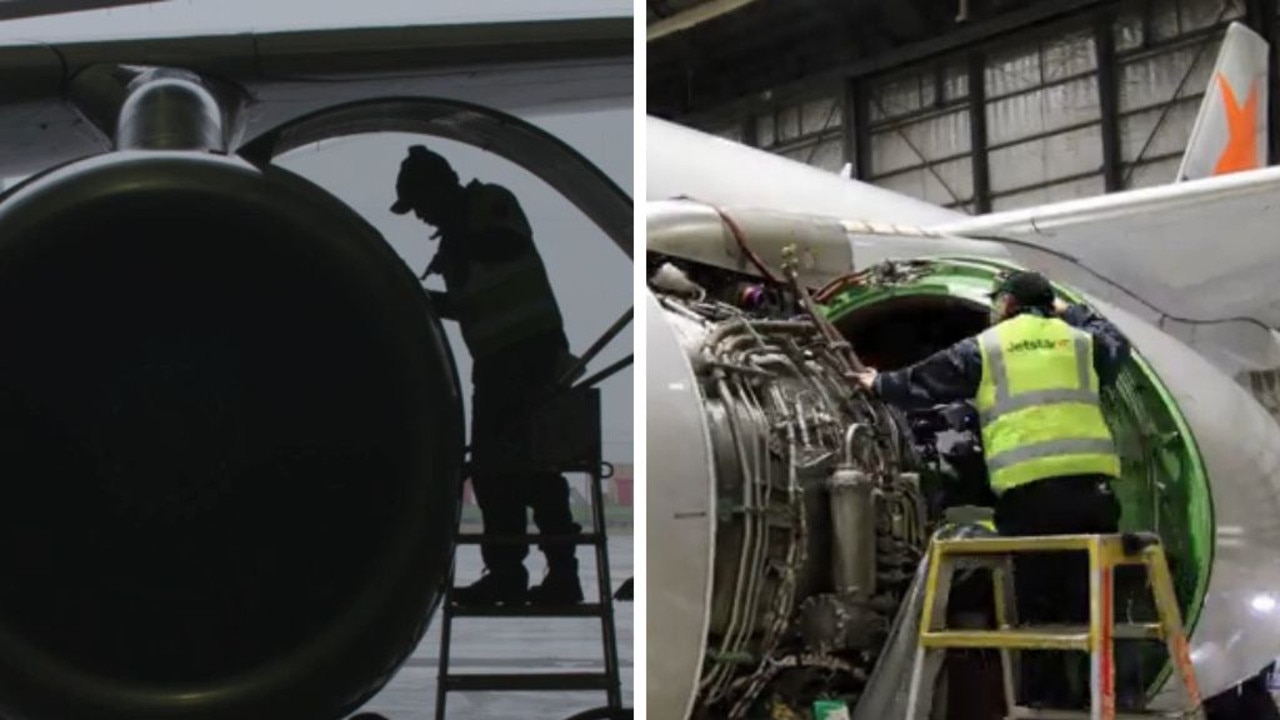Thailand struggles to control aggressive monkeys in wake of coronavirus
Since Thailand shut borders to tourists, its macaques have grown more aggressive and desperate – and they’re now making people flee their homes.
Thailand has started sterilising hundreds of monkeys in a city famous for its macaque population, as the coronavirus pandemic leaves them hungry, aggressive and wrestling food from terrified residents.
Lopburi province and its 2000 monkeys have long been a draw for tourists from around the world, who typically feed them and pose with them for selfies. But since Thailand closed its borders on April 4 to control coronavirus infections, the monkeys are not adapting well to their new normal.
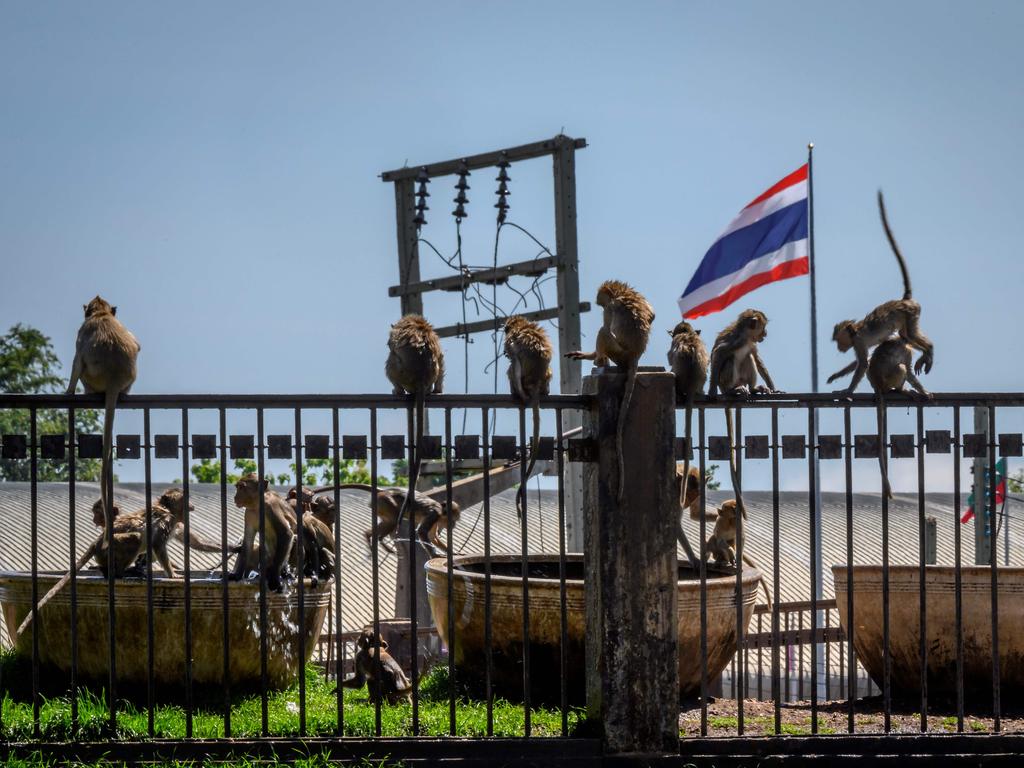
“They’re so used to having tourists feed them and the city provides no space for them to fend for themselves,” government veterinarian Supakarn Kaewchot told Reuters.
“With the tourists gone, they’ve been more aggressive, fighting humans for food to survive.
“They’re invading buildings and forcing locals to flee their homes.”
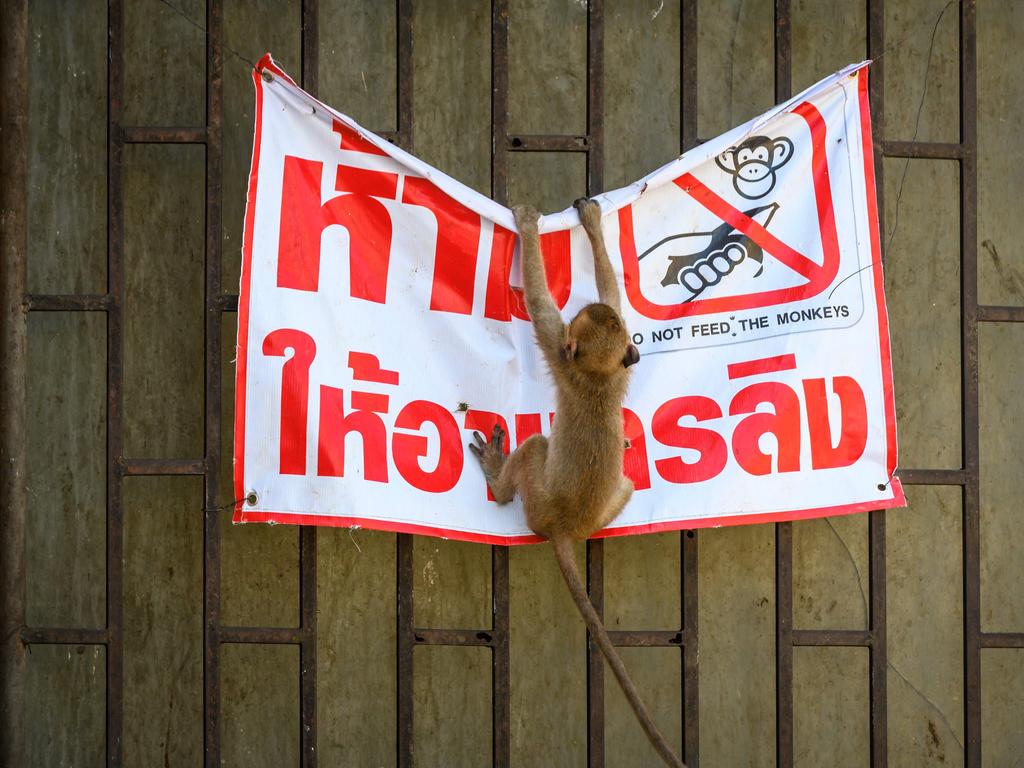
Unlike monkeys in the wild, city monkeys need not hunt for food, giving them more time and energy to reproduce and cause trouble, Supakarn said.
To try to control their fast-growing population, authorities have this week placed big cages around the city with tantalising fruits in them, hoping to lure around 300 monkeys for sterilisation.
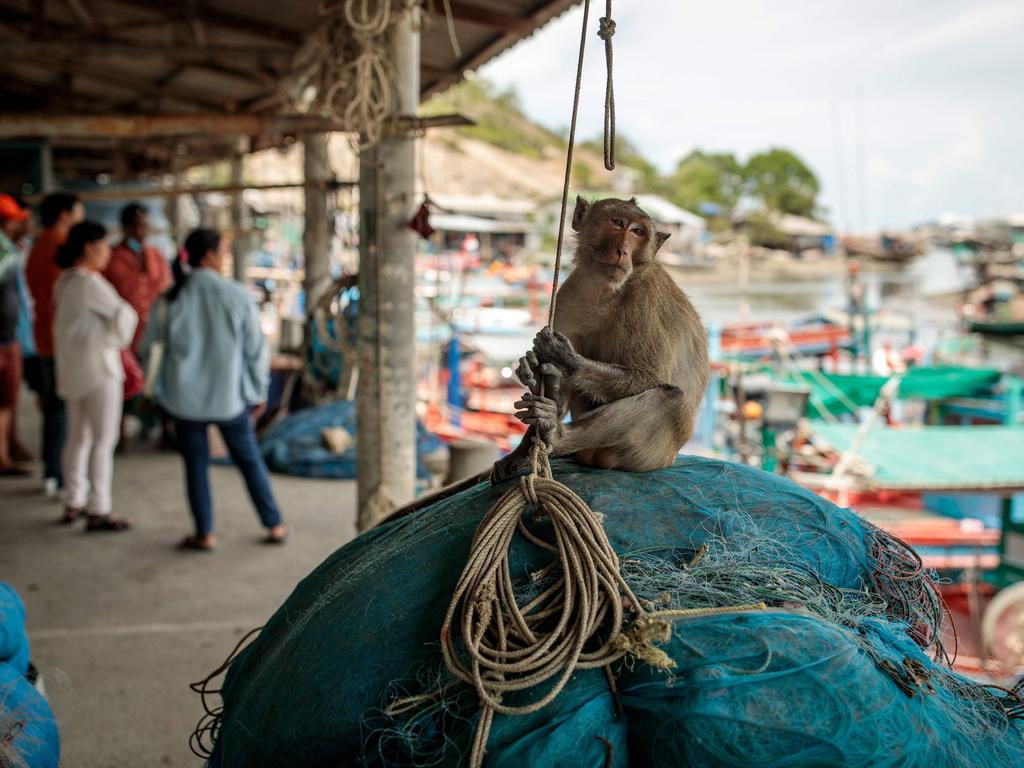
From the cages, the monkeys are transferred to an operating table, where they are sedated, shaved and tattooed with a unique reference number under their arms.
They lay on their backs under a green cloth as vets perform a vasectomy or a tubal ligation operation.
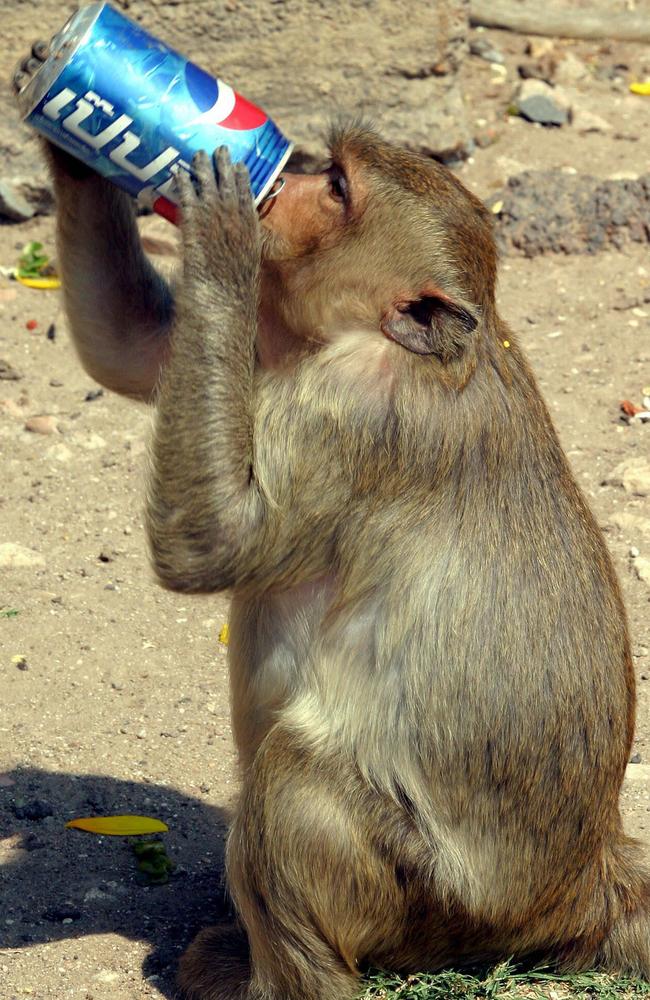
The sleeping monkeys get one night to recover before being taken back to their respective tribes.
The government aims to sterilise 500 of the macaques over the next two months.
Supakarn said the sterilisation would pose no threat to the monkey population and the aim was just to slow down the rate of its urban growth.
“We’re not doing this in the wild, only in the city areas,” she added.

